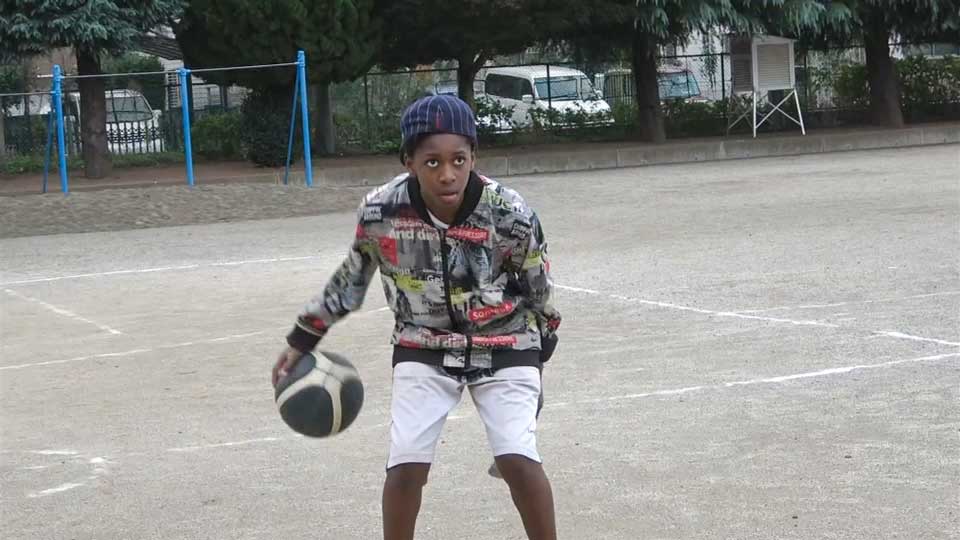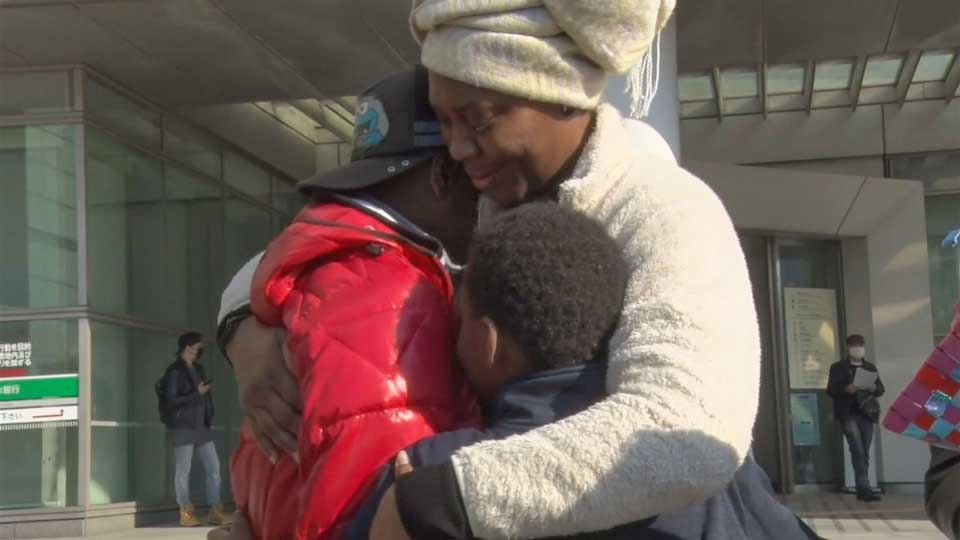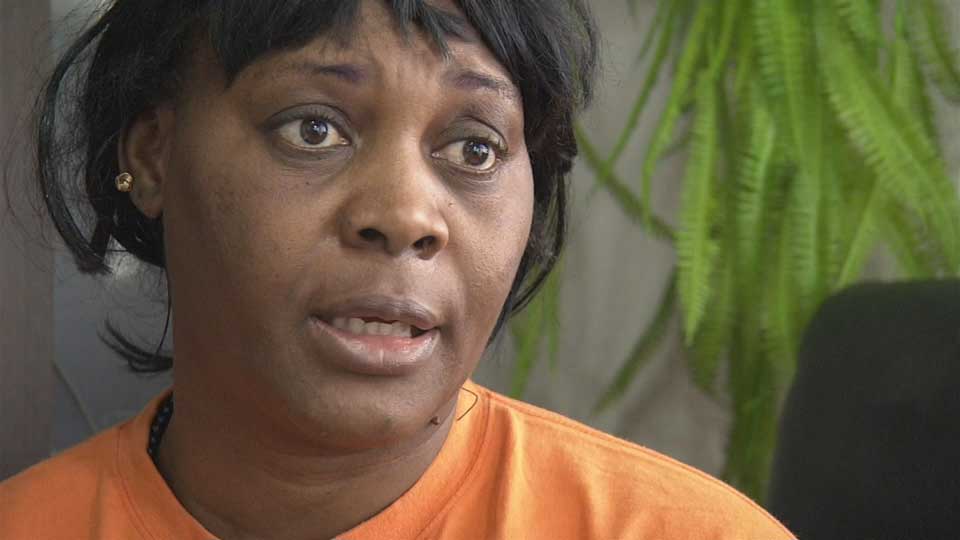Born "Illegal" in Japan
#Foreigners in Japan
#Japan
Wednesday Jan. 20, 2021
Hundreds of children in Japan are living in a kind of limbo, unable to acquire any status of residence in the only country they've ever known. Born to undocumented foreign nationals, they face the fear of deportation and often the pain of long-term separation from a parent detained at an immigration facility.
Samwel, 12, is a 6th-grader living in Saitama Prefecture who dreams of playing basketball in the NBA. He says he wants to be an ambassador of sorts for Japan, the country in which he was born and raised, but also a country in which he, his mother and 10-year-old brother have no status of residence.
Samwel's parents were once politically active in war-torn Democratic Republic of the Congo. Fearing arrest, they fled to Japan in 2008. Their applications for refugee status have since been rejected twice. They have come up against one of the world's toughest screening processes, with an acceptance rate of less than one percent.
 Samwel, born and raised in Japan, dreams of becoming a professional basketball player.
Samwel, born and raised in Japan, dreams of becoming a professional basketball player.Samwel was born shortly after his parents arrived in Japan. His brother, Elikami, was born two years later. Both parents worked part-time jobs on the temporary visas provided to refugee applicants. But, in 2017, nine years after arriving in Japan, his mother, Moloko Bikila, missed the deadline to renew her and her children's visas by a week. All three lost their status of residence.
Most foreigners without a status of residence are asked to leave the country. Samwel's mother insisted there was no safe place for her and her children back in the Congo. In January 2018, Japanese immigration authorities took her into detention.
"I am scared I will be detained like my mother"
Japan's immigration authorities do not detain minors, but the incarceration of a parent is not rare. Moloko's detention meant an extra burden on the children's father, whose visa was still valid. He worked several part-time entry-level jobs, and the children were often left home alone. Twice, child services were called to take the children in. At school, Samwel's brother fell so far behind that he had to join special needs classes.
"Other children sometimes come to school with their parent but we were always alone, and I felt jealous of schoolmates who got gifts from their parents at Christmas," says Samwel, who also says he worries about what will happen to him when he reaches adulthood. "I'm scared I will be detained like my mother when I turn 20"
The mother called her boys everyday from the detention facility. She told Samwel to be strong, and to protect his younger brother. As a mother, the hardest part was being unable to help her boys as they suffered.
But in March 2020, after more than two years in detention, she was suddenly granted provisional release. The authorities gave no explanation.
Her children burst into tears when Moloko walked out of the detention center.
 Moloko Bikila hugs her children after her release from detention in March 2020.
Moloko Bikila hugs her children after her release from detention in March 2020."Without a visa, I cannot take care of my children"
Moloko now has to present herself to immigration authorities for regular screenings. She and her sons need permission to leave Saitama, such as when Samwel goes on a school trip. And they aren't eligible for public health insurance, which means Moloko struggles to afford treatment for the depression she was diagnosed with after her detention. But the biggest problem for the family is that Moloko is not allowed to work. "Without a visa, I cannot take care of my children," she says.
The children's father is still the only breadwinner, but he has been struggling for work since the outbreak of the coronavirus. The family survives on food from a local church and financial donations.
Their gas was cut off in early winter when they fell behind on the bills. Moloko now heats water for the children to wash using an electric rice cooker. Juggling debts and dealing with phone calls from creditors has become a daily reality.
 Moloko hopes for better days to come, and a visa so that she can safeguard her children's future.
Moloko hopes for better days to come, and a visa so that she can safeguard her children's future.Samwel says the situation is difficult, but was even worse when they didn't have their mother. He fears that his mother could be taken away from him again. Moloko accompanies her boys at school every day, sometimes sitting at the back of the class. "I want my boys to know that I am here, that they are safe, that they can have a normal life and a future."
"We're normal human beings, but we're treated differently."
In the same prefecture, 16-year-old Miracle is facing a similar struggle. She was born not to asylum seekers, but to parents from Ghana who overstayed their visas and worked illegally in Japan.
The second-year high school student lives with her parents in the corner of a church. All members of the family are now on provisional release. "Even though we are normal human beings, we are treated differently," she says.
Miracle's parents entered Japan in the early 1990s on tourist visas and found work at a rubber factory, earning about $6 an hour.
At the time, Japan was suffering from a serious labor shortage. Torii Ippei, the head of advocacy group Solidarity Network for Migrants Japan, says authorities turned a blind eye to illegal workers because the country needed them.
Miracle was born in 2003 after her parents had been in Japan for a decade. When she was 7 years old, her father was detained for working without a visa. Today, Miracle's mother Beatrice Kisiwaa is apologetic. "To live together without a visa is wrong. We broke the rules, so I am really sorry". But she also says it is difficult for them to go back to Ghana after 30 years in Japan, with a teenager who has no relationship with their home country, and who can speak only Japanese.
 Miracle, 17, dreams of entering college to become a midwife but even if she succeeds, she won't be allowed to work.
Miracle, 17, dreams of entering college to become a midwife but even if she succeeds, she won't be allowed to work.Koshimizu Masayuki, a local factory owner, has become close friends with the family. Miracle's mother took care of his aging mother while he was busy. They mourned together when she died. Koshimizu says people who overstay their visas should not be seen simply as illegals. He has also collected signatures for a petition calling on the Ministry of Justice to reconsider the family's case.
Suzuki Eriko, a professor at Tokyo's Kokushikan University and a specialist in Japanese immigration policies, says many so-called "illegal foreigners" are the consequence of poor labor policies and she believes the government bears a degree of responsibility to find a solution.
 Beatrice Kisiwaa (left), mother of Miracle, and Koshimizu Masayuki (right)
Beatrice Kisiwaa (left), mother of Miracle, and Koshimizu Masayuki (right)Miracle wants to become a midwife after graduating from high school. But in 2019, an immigration official told her that if she wants a status of residence, her parents should consider going back to Ghana. Miracle says she doesn't want to be separated from her family, even if it means living on provisional release.
Her family is considering legal action to seek a Special Residence Permit. Immigration guidelines indicate that having a child born and educated in Japan, along with "a good level of integration into Japanese society," are positive factors in assessing cases. But the success rate for applications has plunged by 90% in the past 15 years.
According to Japanese Immigration Bureau statistics, there are at least 300 foreign children without a status of residence, and whose families could be subject to deportation. The immigration control law could be reviewed in the next Diet session, and legislators might discuss relaxing the criteria for a Special Residence Permit.
In the meantime, Samwel, Miracle and many more will have no choice but to live under a cloud of uncertainty in the country they call home.
#Foreigners in Japan
#Japan

Rodrigue Maillard-Belmonte
NHK World
Producer
No comments:
Post a Comment